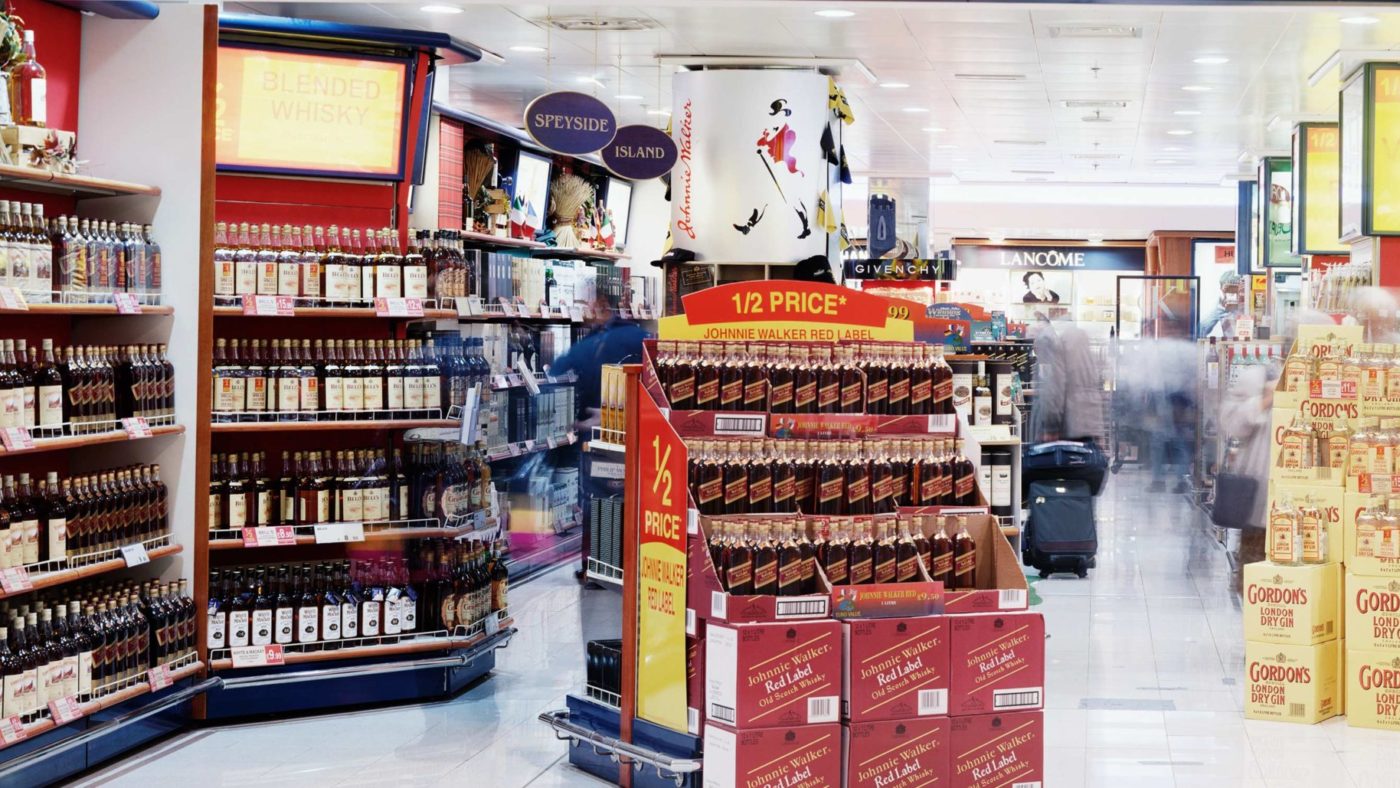Recent pictures of boarded up high streets and a deserted Oxford Circus station, at 9pm last Saturday, have left people asking: when will Britain be back open for business?
Despite all the Chancellor’s promises of reopening and getting the country moving again, some recent non-coronavirus policy announcements send precisely the opposite signal. In September the Treasury quietly released plans to change duty-free shopping. Much of the kickback about the announcement was aimed at the ending of tax-free sales in airports on items such as electronics and food for passengers travelling to non-EU countries. We at the TaxPayers’ Alliance calculated it could cost UK residents an extra £12.1 million in tax a year. But important as this is, less attention has been paid to the effects of ending VAT-free sales for international visitors to the UK.
The changes to the VAT Retail Export Scheme (VAT RES), sees VAT refunds for overseas visitors in British shops removed. Essentially it puts UK prices up by 20% for tourists.
Naturally, this hike in taxes will lead to high-roller shoppers spending less or not coming to the UK at all. As was demonstrated by the depreciation of the pound after the EU referendum, international shoppers are price-sensitive. Post-referendum we saw the value of tax-free shopping sales in the UK rise year-on-year by 36% in July 2016, 28% in August 2016 and 43% in September 2016.
Tiny violins, some might say. Who cares about wealthy shoppers? But without these sales, businesses will be forced to make difficult decisions regarding jobs. London airports alone have estimated that over 5,000 jobs could be lost due to the removal of the VAT exemption for airside retailers. Meanwhile, footwear giant Kurt Geiger has pre-emptively announced 400 layoffs, rising to 600 if the policy is implemented.
But it isn’t just London that will be harmed. The impact of this change will be felt across all the regions of the UK. In 2019 alone Edinburgh, Manchester, Liverpool and Leeds saw a combined £202m in direct retail sales using the VAT RES incentive.
Individual companies will also be badly hit. Johnstons of Elgin reported that 33% of their sales income is from tax-free shopping, meaning they will be forced to lay off staff as a result of this policy. Shirtmaker Turnbull and Asser, who have factories in Gloucester, have said jobs will have to be cut too. So much for the “levelling up” agenda promised by this government. By whacking up prices on big-spending international visitors, HM Treasury will end up cutting off its nose to spite its face.
The decision could also damage the UK on the world stage.
A key benefit of Brexit was supposed to be that British businesses would gain a worldwide competitive advantage. Yet, these changes will give the UK the least competitive regime in Europe, as every EU nation continues to offer tax-free shopping for tourists.
Rather than just resting on their laurels, other countries are making moves to attract tourists and shoppers away from the UK. Ireland recently announced that UK tourists will be allowed to shop VAT-free from January. Shortly after the Treasury’s announcement, the French government declared it would lower its threshold for qualifying purchases of VAT-free shopping from €175 to €100.
With all that in mind, it’s little surprise to see an alliance of businesses and politicians opposed to this policy.
A broad coalition of businesses have already spoken out against the plan, ranging from Selfridges, Ted Baker and Heathrow to Fortnum and Mason. Of the 73 responses to the Government’s consultation on the issue, only two supported abolishing the VAT RES. And not a single company that we can find has spoken up in support of the measure since its announcement, with the common theme amongst business responses being concern about the impact it will have on jobs and investment.
And it isn’t just businesses. Politicians across all parties have voiced concern, with the Government looking increasingly isolated on the issue. London mayoral candidates Shaun Bailey and Sadiq Khan have called for the decision to be reversed, as have the Liberal Democrats.
Even the SNP oppose the measure, due to the impact it will have on Scottish brands and airports. How ironic, if a government which champions the benefits of Brexit and the strengths of the Union, implements a policy which makes us less competitive than our European neighbours. Bluntly, when a policy unites Tory candidates, the SNP and the TaxPayers’ Alliance in opposition, it’s probably time to hold up your hands and admit you got it wrong.
Rather than enacting this unnecessary and harmful change, the Government should be straining every sinew to drive growth. There are plenty of ideas going round – including our own package of pro-jobs, investment-boosting tax cuts and common sense deregulation – but cutting off the customers which so many industries rely upon is not one of them.
A lot has changed since September and the Government has been forced to change tack on a number of key issues as the impact of the pandemic becomes more acute. The same should be done with the Treasury’s policy of scrapping VAT refunds for international shoppers. Then the Chancellor could claim with confidence that Britain is open for business.
Click here to subscribe to our daily briefing – the best pieces from CapX and across the web.
CapX depends on the generosity of its readers. If you value what we do, please consider making a donation.


